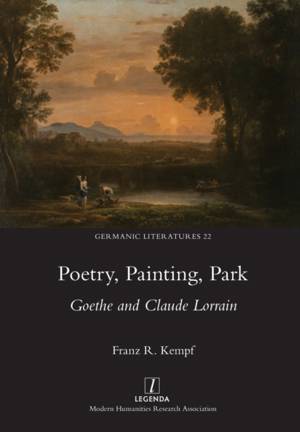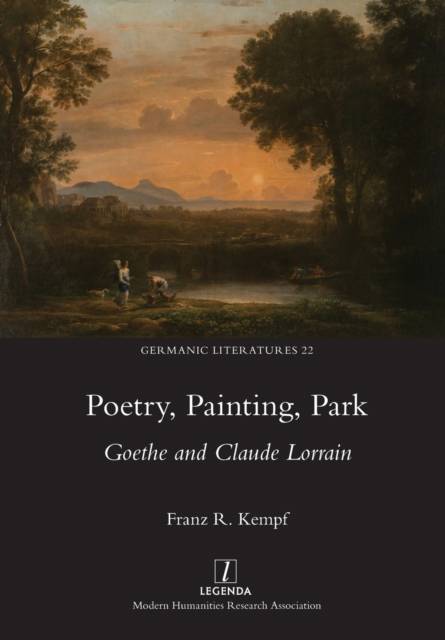
- Retrait gratuit dans votre magasin Club
- 7.000.000 titres dans notre catalogue
- Payer en toute sécurité
- Toujours un magasin près de chez vous
- Retrait gratuit dans votre magasin Club
- 7.000.0000 titres dans notre catalogue
- Payer en toute sécurité
- Toujours un magasin près de chez vous
Description
Imbued with a pulsating energy that emanates from the sun, Claude Lorrain's landscape draws on the interplay of light and darkness to effect a 'living whole' and evoke the symbolic. In a life-long conversation with Lorrain - recorded in texts as diverse as 'Amor as Landscape Painter', Faust, and the Doctrine of Colours - Goethe conducts an inquiry into the dialectics of nature and art, imitation and invention, subject and object. Goethe seeks to comprehend Lorrain by reenacting him in words, in ekphrastic mode, as an experience and an idea. The inquiry remains open-ended for landscape is a paradox: the real, the spiritual, and the affective meet without merging. This aesthetic discovery and visualization of nature as landscape is consonant with the attempt to grasp the world and our place in it. The three sister arts of poetry, painting, and horticulture serve as mirrors for Goethe's self-understanding as an artist, including his ambivalence vis-à-vis the English Garden as articulated, for instance, in the novel Elective Affinities.
Franz R. Kempf is Professor of German Studies at Bard College.
Spécifications
Parties prenantes
- Auteur(s) :
- Editeur:
Contenu
- Nombre de pages :
- 260
- Langue:
- Anglais
- Collection :
- Tome:
- n° 22
Caractéristiques
- EAN:
- 9781781884133
- Date de parution :
- 28-03-22
- Format:
- Livre broché
- Format numérique:
- Trade paperback (VS)
- Dimensions :
- 170 mm x 244 mm
- Poids :
- 417 g

Les avis
Nous publions uniquement les avis qui respectent les conditions requises. Consultez nos conditions pour les avis.






